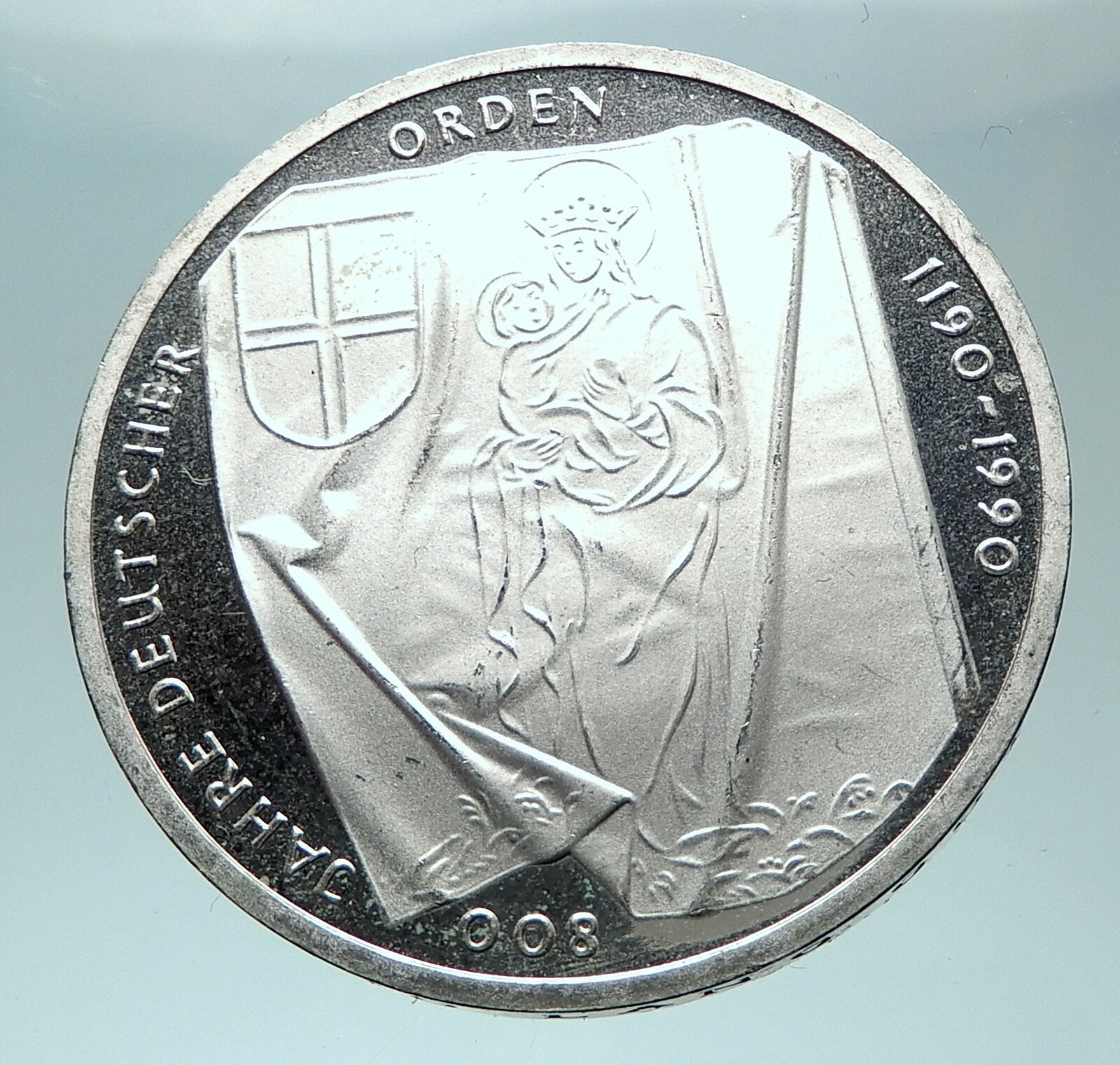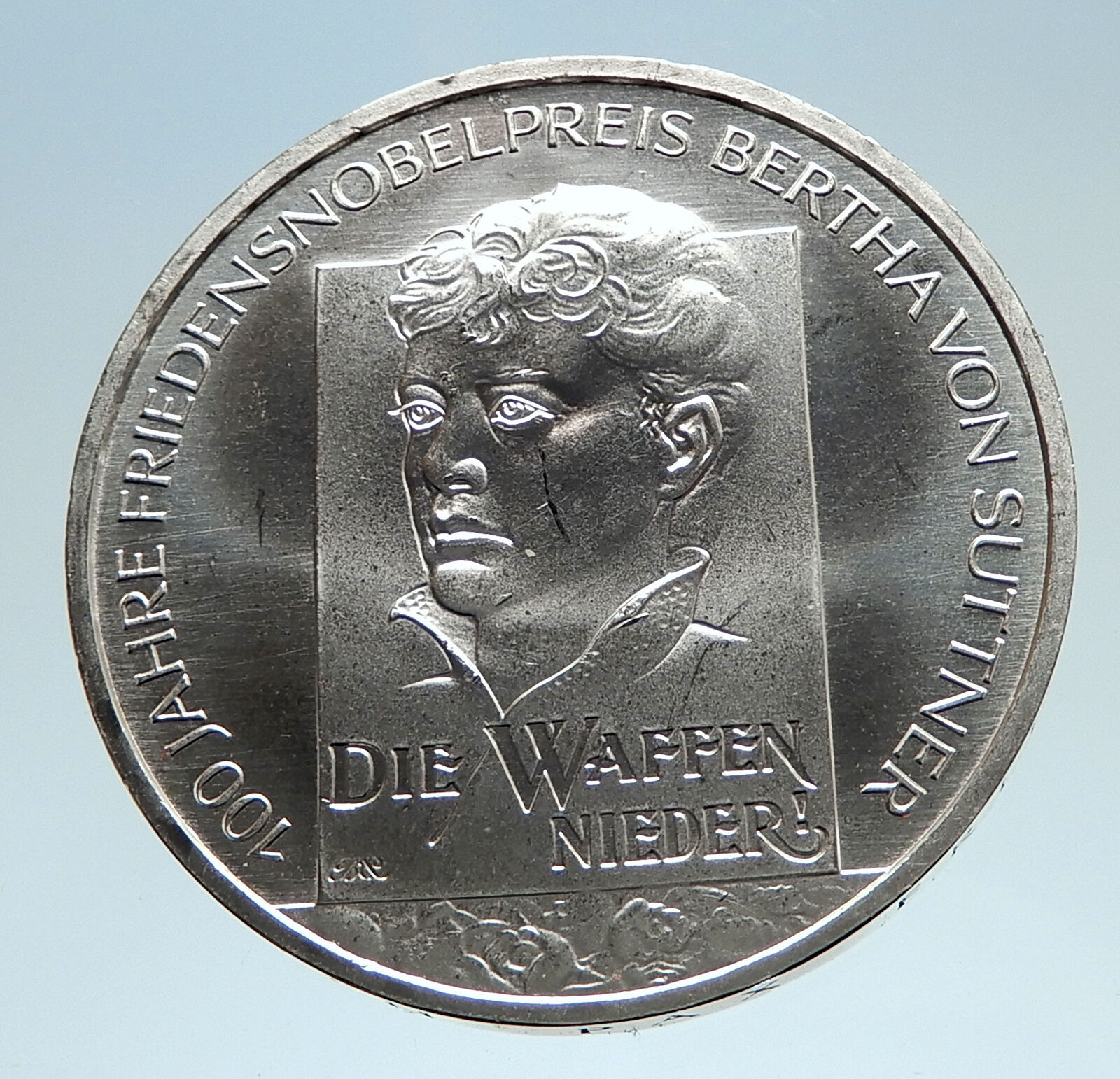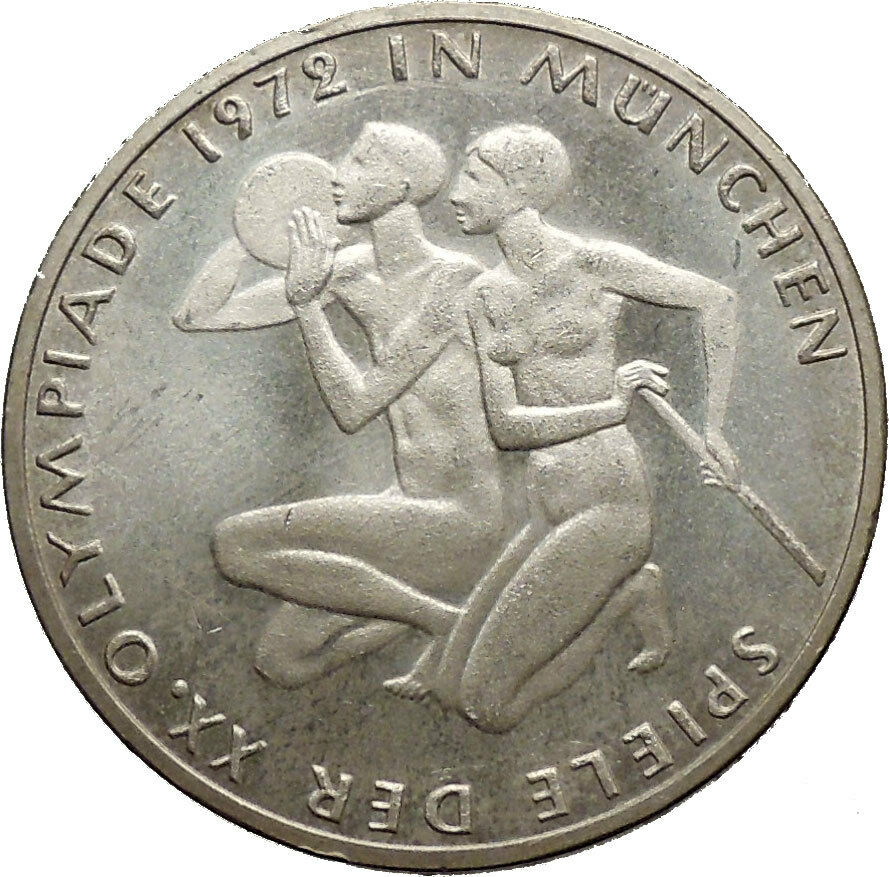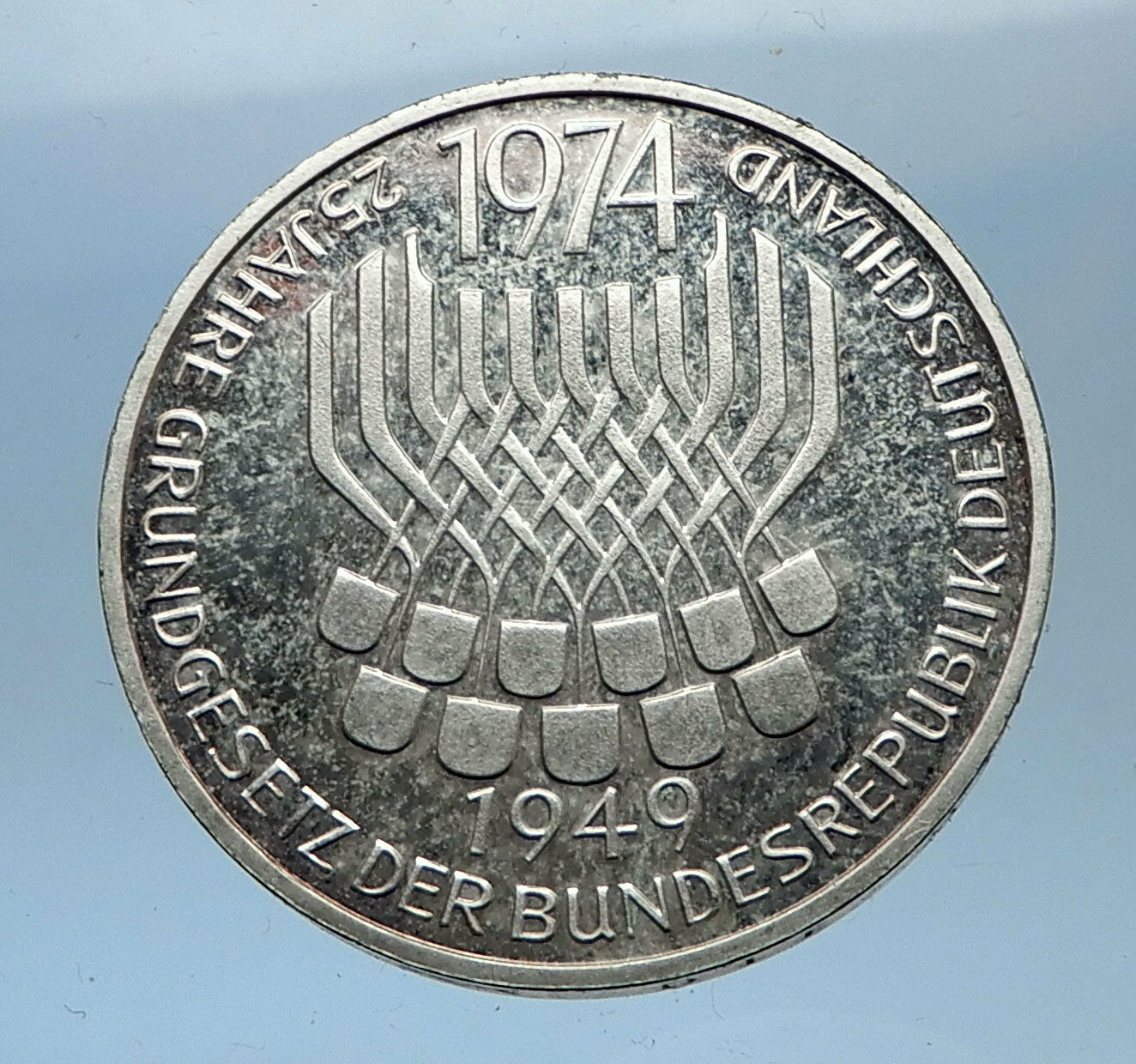|
Germany
175th birthday of Felix Mendelssohn Bartholdy
1984 J Copper-Nickel clad Nickel 5 Marks 29mm (10.30 grams)
Reference: KM# 161 | Engraver: Carl Vezerfi-Clemm
BUNDESREPUBLIK DEUTSCHLAND 5 DEUTSCHE MARK 1984 J, An eagle, emblem of the German Federal Republic Hambourg mint mark (J).
FELIX MENDELSSOHN BARTOLDY 1809-1847, Jacob Ludwig Felix Mendelssohn Bartholdy with a watermark of his piece “A Midsummer Night’s Dream” opening musical notes.
Edge Lettering:
IHR TÖNE SCHWINGT EUCH FREUDIG DURCH DIE SAITEN
You are bidding on the exact item pictured, provided with a Certificate of Authenticity and Lifetime Guarantee of Authenticity.
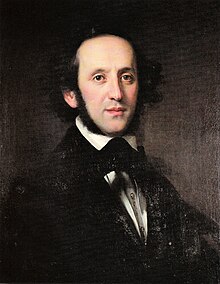 Jakob Ludwig Felix Mendelssohn Bartholdy (3 February 1809 – 4 November 1847), born and widely known as Felix Mendelssohn, was a German composer, pianist, organist and conductor of the early Romantic period. Mendelssohn’s compositions include symphonies, concertos, piano music, organ music and chamber music. His best-known works include the overture and incidental music for A Midsummer Night’s Dream, the Italian Symphony, the Scottish Symphony, the oratorio St. Paul, the oratorio Elijah, the overture The Hebrides, the mature Violin Concerto and the String Octet. The melody for the Christmas carol “Hark! The Herald Angels Sing” is also his. Mendelssohn’s Songs Without Words are his most famous solo piano compositions. Jakob Ludwig Felix Mendelssohn Bartholdy (3 February 1809 – 4 November 1847), born and widely known as Felix Mendelssohn, was a German composer, pianist, organist and conductor of the early Romantic period. Mendelssohn’s compositions include symphonies, concertos, piano music, organ music and chamber music. His best-known works include the overture and incidental music for A Midsummer Night’s Dream, the Italian Symphony, the Scottish Symphony, the oratorio St. Paul, the oratorio Elijah, the overture The Hebrides, the mature Violin Concerto and the String Octet. The melody for the Christmas carol “Hark! The Herald Angels Sing” is also his. Mendelssohn’s Songs Without Words are his most famous solo piano compositions.
A grandson of the philosopher Moses Mendelssohn, Felix Mendelssohn was born into a prominent Jewish family. He was brought up without religion until the age of seven, when he was baptised as a Reformed Christian. Felix was recognised early as a musical prodigy, but his parents were cautious and did not seek to capitalise on his talent. His sister Fanny received a similar musical education and was a talented composer and pianist in her own right; some of her early songs were published under her brother’s name.
Mendelssohn enjoyed early success in Germany, and revived interest in the music of Johann Sebastian Bach, notably with his performance of the St Matthew Passion in 1829. He became well received in his travels throughout Europe as a composer, conductor and soloist; his ten visits to Britain – during which many of his major works were premiered – form an important part of his adult career. His essentially conservative musical tastes set him apart from more adventurous musical contemporaries such as Franz Liszt, Richard Wagner, Charles-Valentin Alkan and Hector Berlioz. The Leipzig Conservatory, which he founded, became a bastion of this anti-radical outlook. After a long period of relative denigration due to changing musical tastes and antisemitism in the late 19th and early 20th centuries, his creative originality has been re-evaluated. He is now among the most popular composers of the Romantic era.
 Germany, officially the Federal Republic of Germany, officially the Federal Republic of  Germany is a federal parliamentary republic in western-central Europe. It includes 16 constituent states and covers an area of 357,021 square kilometres (137,847 sq mi) with a largely temperate seasonal climate. Its capital and largest city is Berlin. With 81 million inhabitants, Germany is the most populous member state in the European Union. After the United States, it is the second most popular migration destination in the world. Germany is a federal parliamentary republic in western-central Europe. It includes 16 constituent states and covers an area of 357,021 square kilometres (137,847 sq mi) with a largely temperate seasonal climate. Its capital and largest city is Berlin. With 81 million inhabitants, Germany is the most populous member state in the European Union. After the United States, it is the second most popular migration destination in the world.
Various Germanic tribes have occupied northern Germany since classical antiquity. A region named Germania was documented before 100 CE. During the Migration Period the Germanic tribes expanded southward. Beginning in the 10th century, German territories formed a central part of the Holy Roman Empire. During the 16th century, northern German regions became the centre of the Protestant Reformation.
The rise of Pan-Germanism inside the German Confederation resulted in the unification of most of the German states in 1871 into the Prussian-dominated German Empire. After World War I and the German Revolution of 1918-1919, the Empire was replaced by the parliamentary Weimar Republic. The establishment of the Third Reich in 1933 led to World War II and the Holocaust. After 1945, Germany split into two states, East Germany and West Germany. In 1990, the country was reunified.
 In the 21st century, Germany is a great power and has the world’s fourth-largest economy by nominal GDP, as well as the fifth-largest by PPP. As a global leader in several industrial and technological sectors, it is both the world’s third-largest exporter and importer of goods. Germany is a developed country with a very high standard of living sustained by a skilled and productive society. It upholds a social security and universal health care system, environmental protection and a tuition free university education. In the 21st century, Germany is a great power and has the world’s fourth-largest economy by nominal GDP, as well as the fifth-largest by PPP. As a global leader in several industrial and technological sectors, it is both the world’s third-largest exporter and importer of goods. Germany is a developed country with a very high standard of living sustained by a skilled and productive society. It upholds a social security and universal health care system, environmental protection and a tuition free university education.
Germany was a founding member of the European Union in 1993. It is part of the Schengen Area, and became a co-founder of the Eurozone in 1999. Germany is a member of the United Nations, NATO, the G8, the G20, and the OECD. The national military expenditure is the 9th highest in the world. Known for its rich cultural history, Germany has been continuously the home of influential artists, philosophers, musicians, sportsmen, entrepreneurs, scientists and inventors.
|




 Jakob Ludwig Felix Mendelssohn Bartholdy (3 February 1809 – 4 November 1847), born and widely known as Felix Mendelssohn, was a German composer, pianist, organist and conductor of the early Romantic period. Mendelssohn’s compositions include symphonies, concertos, piano music, organ music and chamber music. His best-known works include the overture and incidental music for A Midsummer Night’s Dream, the Italian Symphony, the Scottish Symphony, the oratorio St. Paul, the oratorio Elijah, the overture The Hebrides, the mature Violin Concerto and the String Octet. The melody for the Christmas carol “Hark! The Herald Angels Sing” is also his. Mendelssohn’s Songs Without Words are his most famous solo piano compositions.
Jakob Ludwig Felix Mendelssohn Bartholdy (3 February 1809 – 4 November 1847), born and widely known as Felix Mendelssohn, was a German composer, pianist, organist and conductor of the early Romantic period. Mendelssohn’s compositions include symphonies, concertos, piano music, organ music and chamber music. His best-known works include the overture and incidental music for A Midsummer Night’s Dream, the Italian Symphony, the Scottish Symphony, the oratorio St. Paul, the oratorio Elijah, the overture The Hebrides, the mature Violin Concerto and the String Octet. The melody for the Christmas carol “Hark! The Herald Angels Sing” is also his. Mendelssohn’s Songs Without Words are his most famous solo piano compositions. Germany, officially the Federal Republic of
Germany, officially the Federal Republic of  Germany is a federal parliamentary republic in western-central Europe. It includes 16 constituent states and covers an area of 357,021 square kilometres (137,847 sq mi) with a largely temperate seasonal climate. Its capital and largest city is Berlin. With 81 million inhabitants, Germany is the most populous member state in the European Union. After the United States, it is the second most popular migration destination in the world.
Germany is a federal parliamentary republic in western-central Europe. It includes 16 constituent states and covers an area of 357,021 square kilometres (137,847 sq mi) with a largely temperate seasonal climate. Its capital and largest city is Berlin. With 81 million inhabitants, Germany is the most populous member state in the European Union. After the United States, it is the second most popular migration destination in the world. In the 21st century, Germany is a great power and has the world’s fourth-largest economy by nominal GDP, as well as the fifth-largest by PPP. As a global leader in several industrial and technological sectors, it is both the world’s third-largest exporter and importer of goods. Germany is a developed country with a very high standard of living sustained by a skilled and productive society. It upholds a social security and universal health care system, environmental protection and a tuition free university education.
In the 21st century, Germany is a great power and has the world’s fourth-largest economy by nominal GDP, as well as the fifth-largest by PPP. As a global leader in several industrial and technological sectors, it is both the world’s third-largest exporter and importer of goods. Germany is a developed country with a very high standard of living sustained by a skilled and productive society. It upholds a social security and universal health care system, environmental protection and a tuition free university education.

